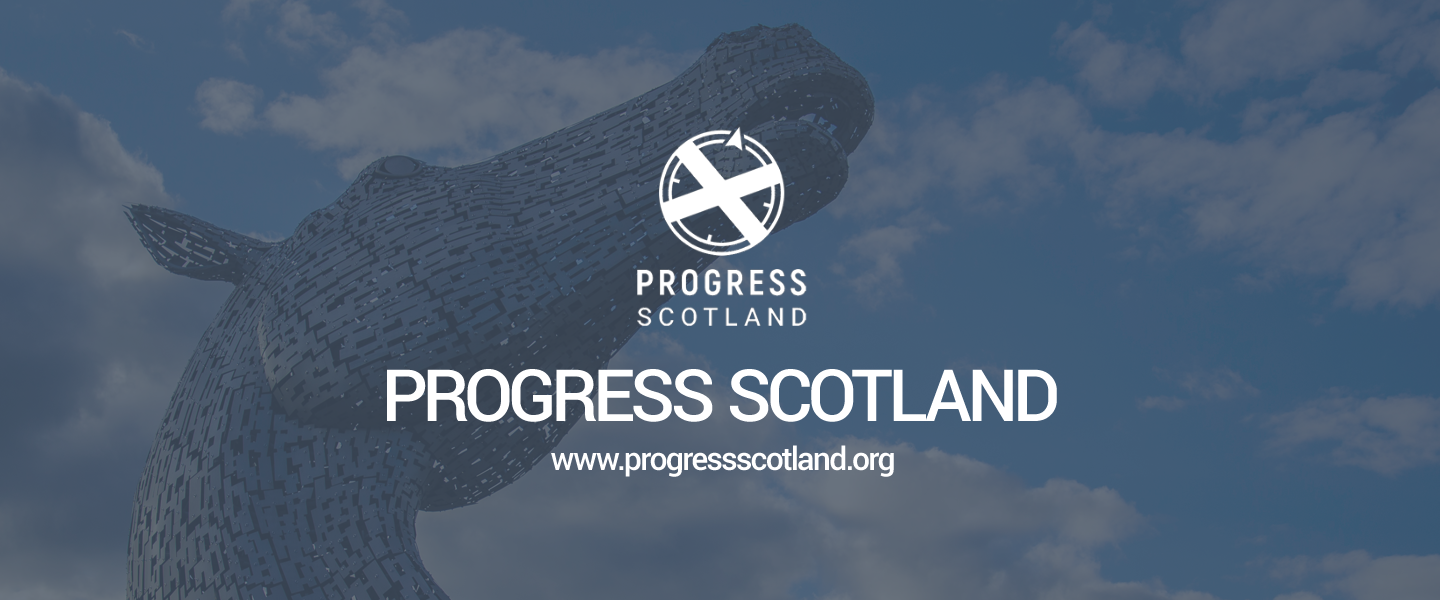
14 - 10 - 2020 / Polling
74% THINK SCOTLAND SHOULD DECIDE ON RELATIONSHIP WITH EU
Nearly three quarters of people who have an opinion believe that Scotland’s parliament and government should decide on the country’s relationship with the European Union and 75% say they would vote for independence if they were convinced that it would be good for the Scottish economy.
The striking findings on Scotland’s future are the latest to be released from a super-sized poll of 2,093 respondents conducted by Survation for Progress Scotland.
There were also stand out results on the economy with 57% agreeing that independence will be good for the Scottish economy in the long run and 74% agreeing that control over all decisions affecting people in Scotland should be made by the Scottish parliament/government, regardless of which political party is in power.
Latest poll details:
Decisions over Scotland’s relationship with the European Union should be made by the Scottish parliament/government
- Agree 74%
- Disagree 26%
- Net: +48
I would vote for independence if I was convinced that it would be good for the Scottish economy
- Agree 75%
- Disagree 25%
- Net: +50
Control over all decisions affecting people in Scotland should be made by the Scottish parliament/government, regardless of which political party is in power
- Agreed 70%
- Disagree 30%
- Net: +40
Independence would be good for the Scottish economy in the long run
- Agree 57%
- Disagree 43%
- Net +14
Decisions over defence and foreign affairs affecting Scotland should continue to be made by the UK parliament/government
- Agree 51%
- Disagree 49%
- Net: +2
Independence would be more damaging to the Scottish economy than Brexit
- Agree 49%
- Disagree 51%
- Net: -2
On future currency options
- 54% prefer keeping the pound in the long term
- 19% Keeping the pound in the short term and switching to a new Scottish currency in the longer term, when economic tests have been met
- 12% Don’t know
- 10% favour joining the EU single currency, the Euro
- 5% support switching to a Scottish currency in the short term
- 1% an another option
Progress Scotland managing director Angus Robertson said:
“Public opinion is overwhelmingly in favour of Scotland deciding its own relationship with the European Union. The fact that nearly three quarters back the Scottish Parliament and government making future decisions is a big warning to Westminster which is ploughing on with Brexit which was opposed by 62% of voters in Scotland
“As we already know from previous polls Brexit has had a huge impact on many people moving from opposition to now supporting independence as a way of protecting Scotland’s place in Europe.
“The fact that 75% would vote for independence if they were convinced that it would be good for the Scottish economy is remarkable and should encourage the pro-independence side in making the economic case to help grow support ahead of the next independence referendum.
“Earlier parts of the poll have already been released which reflect how much opinion is changing in Scotland and impacting on views towards Scottish independence. The poll has already established that the highest-ever percentage of voters in Scotland now believe that there would be a YES victory if a referendum were held tomorrow and that one third of 2014 NO voters have changed their minds to YES or are not sure how they would vote.
Pollster analysis by Mark Diffley:
The poll focused on areas of decision-making powers, the economy and currency options in an independent Scotland, in some case repeating questions from previous polls in order to assess trends. Some revealing data and trends emerge from the data:
Decision-making powers:
There is strong support for the Scottish parliament/government to have more powers, including:
- Over 6 in 10 Scots (63%) agree with the proposition that the Scottish parliament government should have control over all decisions affecting Scotland – this includes a majority from voters in every region of Scotland and a plurality of 2014 ‘No’ voters and those who voted for Labour and the Liberal Democrats at the 2019 general election,
- Slightly more Scots think that the UK government, rather than the Scottish government, should have control over defence and foreign affairs (40% versus 38%) but this gap has closed since the last poll in October 2019 when there was a 12-point gap of 45% to 33%,
- Around Scotland’s future relationship with the EU (up 4 points since October) while disagreement with this proposition has fallen 5 points, from 27% to 22%, in this period.
Economy and independence
As with other issues in this poll, there is a revealing change in attitudes to the economy and independence, including:
- Nearly two-thirds of Scots (63%), rising to 75% of those with an opinion, say they would vote ‘Yes’ if they were convinced it would be good for the Scottish economy. As expected a large majority of 2014 ‘Yes’ voters support this proposition; more surprising is that more 2014 ‘No’ voters support this proposition than oppose it; among ‘No’ voters who express and opinion, 52% say they would vote ‘Yes’ if they were convinced it would be good for the economy and 48% disagree
- In another change of attitudes in the last year, a plurality of voters now think independence would be good for the Scottish economy, by a margin of 11 points (45% agree with the proposition while 34% disagree). Again, looking at the attitudes of 2014 voters is instructive here, with 18% of 2014 ‘No’ voters believing that independence would be good for the economy in the long run, compared to only 9% of 2014 Yes voters who disagree
- Conversely, the proportion of Scots agreeing with the proposition that ‘independence would be more damaging to the Scottish economy than Brexit’ has fallen from 42% in October 2019 to 37% now. This now means that the attitudes on this question are broadly evenly split with 39% disagreeing with the statement.
Currency options
- This issue of currency options was important in 2014, though it is only mentioned as a ‘top 3’ issue by 8% of respondents to this survey.
- The most popular currency option of those posed in the survey is to keep the pound in the long term (54%) followed by 1 in 5 (19%) who support transition to a new currency once economic tests are met. Other options, joining the Euro (10%) or switching to new currency in the short term (5%) gain little support,
- Support for a longer-term transition to a new currency is below support for retaining the pound in all voting groups; however it is the preferred option of 3 in 10 (30%) of the 2014 ‘Yes’ cohort (compared to 10% of ‘No’ voters) and 30% of those who voted for the SNP in 2019 general election (compared to between 9% and 12% of those who supported other parties)

